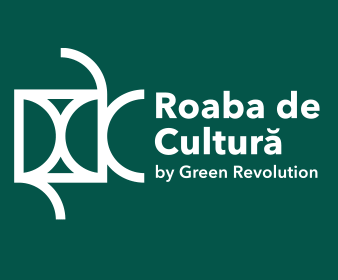Greenpeace flagship "Rainbow Warrior" blocks palm oil shipment
Dumai, Indonesia, 15 November 2007 – The Greenpeace flagship Rainbow Warrior/ /today blocked the tanker MT Westama, which is loading over 30,000 tonnes of palm oil, from leaving the port of Dumai, in Riau province, Sumatra, Indonesia. With a banner reading "Palm Oil Kills Forests and Climate", the Rainbow Warrior anchored herself next to the MT Westama to stop the export of palm oil.
"We are taking action to expose the disastrous effects the palm oil industry is having on Indonesia’s peatlands, forests and the global climate" said Sue Connor, Greenpeace International forests campaigner.
The consignment of palm oil on the MT Westama belongs to Permata Hijau Sawit, one of the largest exporters of palm oil from Indonesia, accounting for 15 per cent of all exports in the first half of 2007. Permata Hijau Sawit exports palm oil from companies known to be involved in forest destruction and forest fires on peat land in Riau. The palm oil was destined for India.
The expansion of palm oil plantations into forest and peatland areas poses a serious threat to the global climate and Indonesia’s remaining forests. Expansion plans in Riau province alone have the potential of triggering a ’climate time bomb’. Riau’s peatland forests store a massive 14.6 billion tonnes of carbon equivalent to one year’s global greenhouse gas emissions. (1)
Riau is home to one-quarter of Indonesia’s palm oil plantations. There are plans to expand the area under concession by three million hectares, which would cover half the province with plantations.
"Global demand for palm oil for use in food, cosmetics and now so-called ’biofuels’ is driving deforestation and climate change," Ms Connor said. "The logging, draining and burning of Indonesia’s peatland forests releases
a massive amount of stored carbon back to the atmosphere. This contributes to Indonesia being the third largest emitter of greenhouse gases on the planet."
Two and a half weeks before the world’s governments gather in Bali to decide on the next phase of nternational measures to combat climate change, Greenpeace is calling for a drastic reduction of deforestation to be part of these measures.
According to a Greenpeace International report released last week, large multinational companies like nilever, Nestle and Procter & Gamble, which use palm oil in their products, are complicit in forest destruction as they have no way of knowing if their palm oil comes from forest conversion. (2)
"These companies must immediately stop purchasing palm oil until they can guarantee that it does not come from plantations linked to forest destruction," Ms Connor said.
The expansion of palm oil plantations is the biggest driver of deforestation in Indonesia.
"We want the Indonesian Government to implement an immediate moratorium on forest conversion and peatland destruction in order to prevent dangerous climate change," said Bustar Maitar Greenpeace South East Asia’s forests spokesperson. "Our forests have the potential of being an important part of a global solution on climate change. However, if forest conversion is allowed to continue, Indonesia’s forests will instead be a significant part of the problem."
Indonesia is the world’s leading palm oil exporter and Dumai is Indonesia’s leading palm oil port. It is the key service port of the province of Riau.
"Riau is just one example of the massive expansion plans for Indonesia’s palm oil industry," Mr Maitar said. "The forests and peatlands of other parts of Indonesia, including Sumatra, Kalimantan, and Papua, are all threatened by growing international demand for palm oil."
At the upcoming climate meeting in Bali, Greenpeace will be calling for an agreement to negotiate a new funding mechanism to help achieve a drastic reduction in deforestation. The resulting reductions in emissions must be additional to cuts in emissions from burning fossil fuels.



